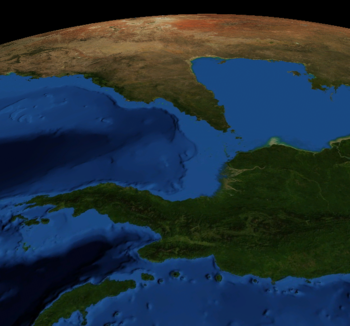Some 3435 candidates will contest the 89 open and 22 provincial seats, and 46 political parties have been registered with the Integrity of Political Parties and Candidates Commission. Large sums of money are being paid out by aspiring MPs and the first ‘election-related death’ has already been reported.
It is hoped that the election will help end the destabilising conduct which has dominated the political scene since August 2011, when the National Parliament unconstitutionally removed Sir Michael Somare and voted in Peter O’Neill as prime minister by 70 votes to 24. The foundations of Papua New Guinea’s democratic system have been shaken by the subsequent actions of O’Neill and his deputy, Belden Namah, who tried to obstruct a challenge to the legality of the parliament’s actions, to pass retrospective legislation to remove Somare from his parliamentary seat, and to postpone the election. It remains to be seen whether O’Neill and Belden’s actions will permanently damage the country’s quality of democracy.
Political parties play a minor role in Papua New Guinea elections, and so it is notoriously difficult to predict electoral outcomes. There are no defining social or cultural cleavages differentiating party policies, and almost no ‘party vote’ because many candidates stand as independents and only align themselves with a party if they are elected. For the most part, candidates campaign on — and voters respond to — local issues and local loyalties, which renders the demographic composition of the electorate important. Since independence, no party has emerged from an election with a majority and every government has thus been a coalition — the last coalition brought together more than 10 parties and some independents. These coalitions have been notoriously unstable: between 1977 and 2002 the government was changed mid-term in every parliament, mostly through votes of no confidence against the prime minister.
After the June 2012 elections, the leader of the party with the most winning candidates will be invited to form a government. In 2002, and again in 2007, Sir Michael Somare’s National Alliance (NA) party won the largest number of seats, and for this reason he headed two successive coalitions. But tensions were building up within the coalition and within the NA after 2007. So when Somare was ousted in August 2011 a number of MPs crossed the floor to support O’Neill, joining others who had done so earlier. Of the 27 MPs who had been endorsed by the NA and the 13 independents who joined the NA immediately after the 2007 election, it appears that only 12 remain.
Some of those who left the NA subsequently joined O’Neill’s People’s National Congress, which in 2007 had only four MPs, but others remained apparently unattached or formed their own party, like former Deputy Prime Minister Don Polye. In May 2012 O’Neill claimed that the People’s National Congress had 25 MPs and Namah claimed 29 members for the PNG Party. Yet at least half of the MPs are likely to lose their seats, so these figures do not give much of a guide as to which party will emerge from the election with the most MPs.
O’Neill and Namah have reportedly signed a memorandum of agreement to support one another during the election and in the formation of a government afterwards. But there have been tensions between the two party leaders since August 2011, so that even if both are re-elected, it cannot be assumed that the coalition will be sustained. Meanwhile, Somare made a last-minute decision to recontest his East Sepik provincial seat and lead the NA into the election. He has proposed a coalition of the NA, Pangu Party (under whose banner Somare led the country into independence), Sir Julius Chan’s People’s Progress Party (Pangu’s former coalition partner) and two other older parties: the National Party and the United Party. But it seems unlikely that after last year’s events the NA will regain the numbers it had in 2007.
As usual in Papua New Guinea politics, it is hard to predict what will happen next.
Ron May is an Emeritus Fellow in the State, Society & Governance in Melanesia Program, Australian National University.

